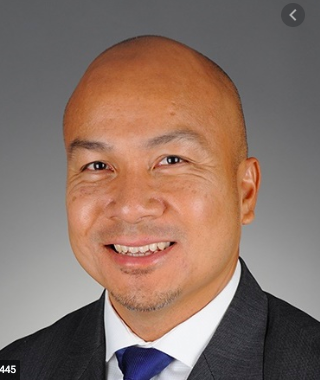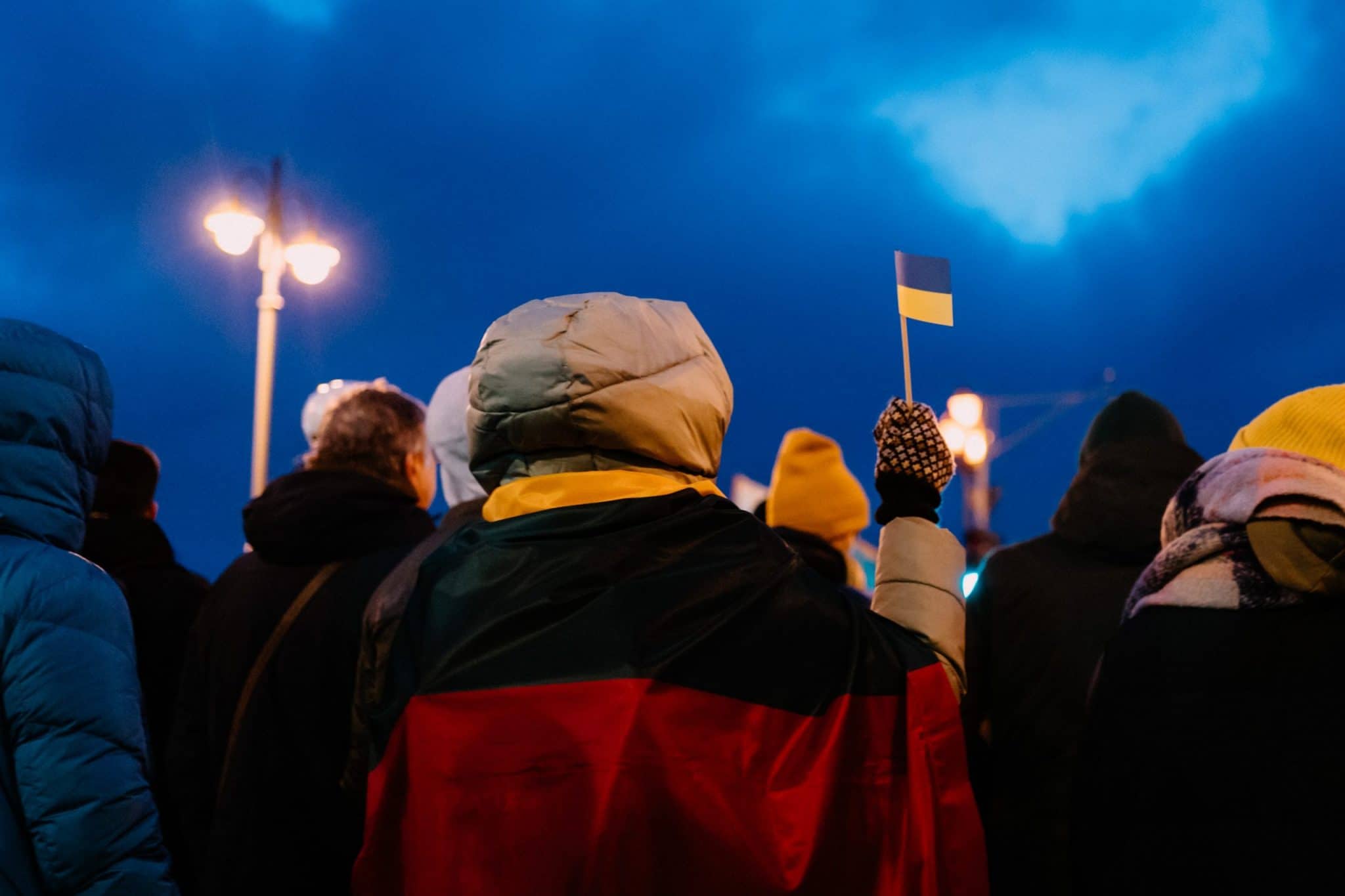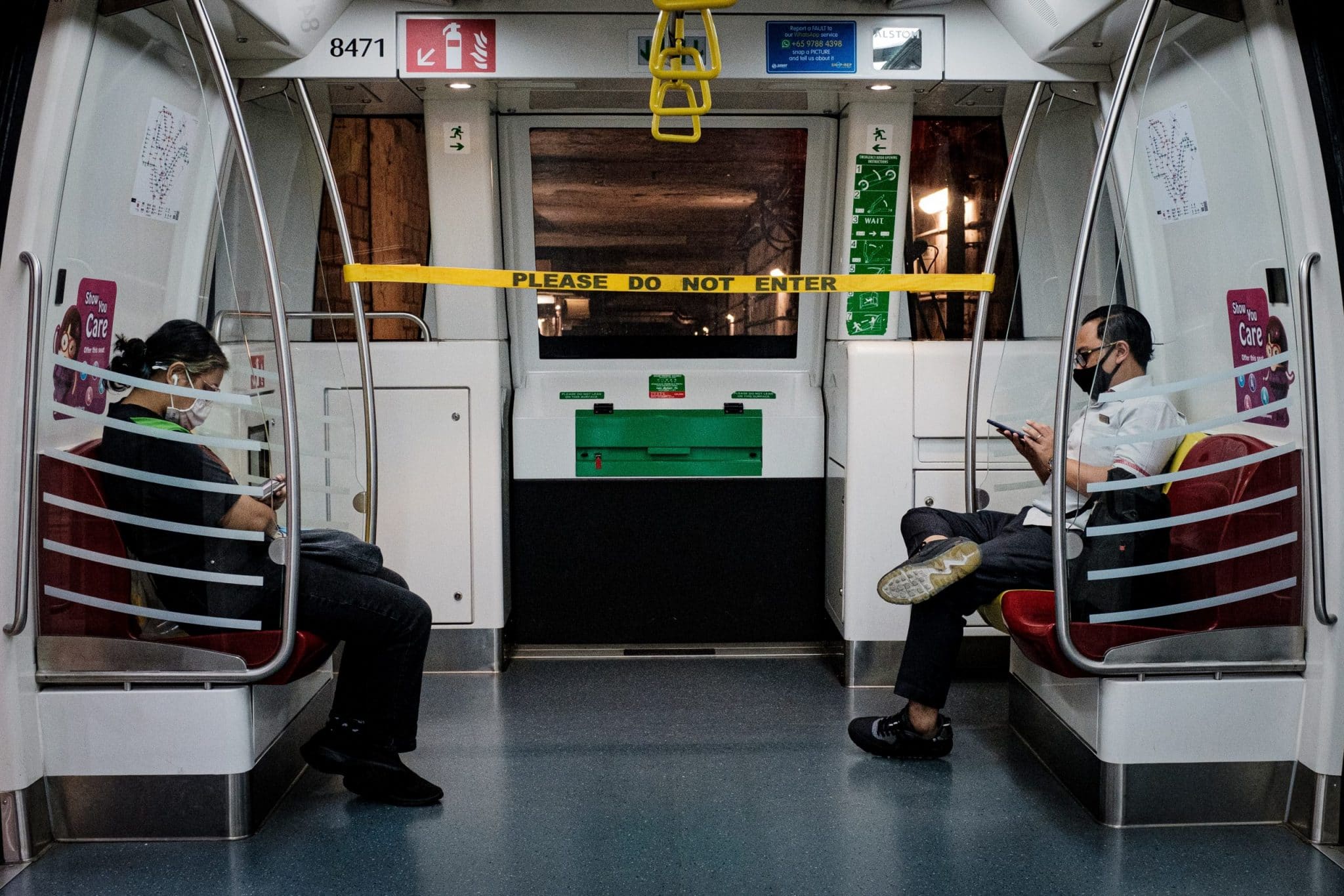Global uncertainties and disruption: How do believers respond?
Joseph Liow // March 11, 2020, 4:47 pm

Photo by Ross Findon on Unsplash.
Uncertainty and disruption seem to be the order of the day. We are at a historical moment in time.
So as Christians, how do we comprehend and respond to these changes and disruptions?
Clarity of purpose
We must begin with a realisation that these are real problems we have to confront because we have been called to be in this world, even if we are not of this world.
We are still meant to be here, and there is a purpose for us being here.
This calling means that as Christians, we have to engage the affairs of the world even if we are not ultimately defined by them. Even when the nation of Israel was taken captive in Babylon, Jeremiah wrote to them, exhorting them to not only build their lives in Babylon and to live in that state, but to seek its welfare (Jeremiah 29:4-7).
In His high priestly prayer recorded in John 17, Christ prayed not for God to take his people out of the world, but to keep them from the evil one in a hostile world (John 17:15-18).
We are still meant to be here, and there is a purpose for us being here.
We are called not to be isolated but to be engaged, sent out as sheep among wolves, so that we can be the salt and light of the world.
With this in mind, let me make three broad points that serve as a way of thinking about geopolitical and geoeconomic problems and challenges from a Christian perspective:
1. Christ the Disruptor
We must realise that disruption is not a concept foreign to Christianity.
As Christ was a disruption so, too, was Christianity.
Consider Christ’s Sermon on the Mount (Matthew 5-7) or His Sermon on the Plain (Luke 6). These sermons flew in the face of the prevailing wisdom of the day.
By talking about being peacemakers in a social context where warfare was the ultimate expression of power, giving to the needy when society was stratified according to class, and building up treasures in heaven not on earth, Jesus was establishing the norms of a counter-culture that greatly disrupted what was at the time accepted as social order. Indeed, little of that order appears to have changed today.
As Christ was a disruption, so too was Christianity.
When it was formed, the New Testament Church was an institution that also posed a threat to the prevailing social order. It did so, not only because it sought to institutionalise and normalise the teachings of Christ, but in so doing went against the norms of the day.
The proposition that there was a One True God fundamentally challenged beliefs of Asian societies.
Consider, for instance, the Gospel in the context of the customary practice to honour the deities of the day. The church thence was a subversive institution. And it was not only during the era of the early church.
The Protestant Reformation, from which our numerous creedal allegiances and denominations spring, was also a great disruption as was the introduction of Christianity to our part of the world, Asia.
The proposition that there was a One True God who unilaterally made a covenant with His chosen people (Genesis 15) was not only foreign to the local religions in Asia, it fundamentally challenged long-established beliefs of many Asian societies.
2. Nothing new under the sun
Because Christianity is so closely associated with disruption, disruption itself should not be anything new to the Christian.
Because Christianity is so closely associated with disruption, disruption itself should not be anything new to the Christian.
While all these latest developments have prompted anxiety and concern, and created a sense that this is all new; in reality, it isn’t new.
Whether the challenge is technological advancements of the fourth industrial revolution or the rivalry among great powers, perhaps even verging on war, all this has been seen before.
The second half of the book of Daniel for instance, provided a vivid discussion of the rise and fall of great powers long before Paul Kennedy published his tome of the same title in 1987.
In fact, Ecclesiastes 1 reminds us precisely of the theme of continuity in our lives on earth (Ecclesiastes 1:1-11).
3. Subverting the fallen
While Christianity was born out of disruption, God is a God of a godly order; of peace and not confusion (1 Corinthians 14:33). There was order and structure from the very beginning of creation. Even the angelic hosts were organised on hierarchy and function.
There is not necessarily a disconnect here (ie Christianity being disruptive but God being orderly), although it may seem so at first glance.
While Christianity was born out of disruption, God is a God of a godly order; of peace and not confusion.
Christianity was a disruption by virtue of it subverting the order of the fallen world. And it is also because we live in a fallen world that God sees the need to restrain the most evil impulses of man by empowering the state.
As stated in Article 36 of the Belgic Confession, which is the confession of faith for most Reformed churches: “We believe that, because of the depravity of the human race, our good God has ordained kings, princes and civil officers.
“He wants the world to be governed by laws and policies so that human lawlessness may be restrained and that everything may be conducted in good order among human beings. For that purpose he has placed the sword in the hands of the government, to punish evil people and protect the good.”
Therefore, although the world is confronted with much uncertainty and disruption, Christians should take comfort in the fact that in the larger scheme of things of God’s divine plan, there is nothing that perturbs or distresses Him about this uncertainty and disruption.
Indeed, it is unfolding exactly according to His will, upon which the divine order is predicated.
This is an extract of an article by Prof Joseph Liow that was first published on Ethos Institute. Republished with permission.
“We miss him fully, but we don’t grieve as those who have no hope”: Parents of Baby Emme
We are an independent, non-profit organisation that relies on the generosity of our readers, such as yourself, to continue serving the kingdom. Every dollar donated goes directly back into our editorial coverage.
Would you consider partnering with us in our kingdom work by supporting us financially, either as a one-off donation, or a recurring pledge?
Support Salt&Light



